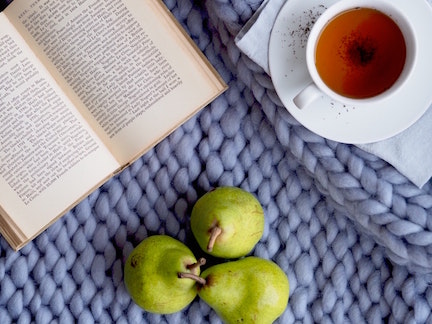11 Tips to Reduce Stress and Anxiety

We all experience varying degree of stress in our lives. Right now, we are facing an unprecedented season in our world. The many changes and adaptations due to the coronavirus pandemic can be overwhelming and stressful. Now more than ever, the environment is prime for stress and anxiety to creep up on us. However, we can learn to reduce stress and anxiety while maintaining a happier and heathier life. The following tips will help you reduce stress and anxiety and maintain a lifestyle of bliss, happiness and love.
Make time for physical activity. Consistent exercise is good for cultivating a strong and healthy body and mind. In addition, research has shown that regular exercise can promote a positive mindset, overall well-being and increase life span.
Eat healthy, well-balanced meals. Partake of nutritious meals by consuming the right balance of healthy carbohydrates, proteins and fats, fruits and vegetables. Also, avoid skipping meals throughout the day. It is important to eat three meals per day and two to three healthy energy boosting snacks.
Maintain a positive attitude. Be mindful of your thought process and make a conscious effort to replace negative thinking with positive ones. By thinking positively, you will perceive stressful situations as less threatening. As a result, you will be able to cope more effectively with stressors.
Express gratitude. Expressing thankfulness and appreciation for what you have will help you live a happier life. Since gratitude is a spontaneous emotion, it is important to make a conscious effort to counts your blessings. Research shows that the deliberate cultivation of gratitude has both personal and social benefits and lead to consistent cheerfulness.
Get adequate sleep. Sleeping is a great way to help your body recover when stressed. Getting at least eight hours of quality sleep will help restore and refresh your body and cause you to wake up feeling reenergize and less stress.
Seek community support. If you are feeling overwhelmed, you don’t have to cope with this feeling by yourself. You can talk to trusted family members, friends and significant others or a specialist about your feelings for support and advise to help you regain control and restore balance.
Take time for self-care. You have to first take care of yourself so that can take care of your love ones. So, set aside some time each day to do something that warms your heart and help you relax. It can be anything from going for a walk, reading a book, listening to music, getting a message, mediation or practicing relaxation techniques. Whatever self-care activity you enjoy, make time for it each day.
Laugh often. Laughter is good medicine for your mind, body and soul. It is a great way to release tension and relax your mind.
Practice relaxation techniques. Even one minute of slow deep breaths can go a long way in reducing tensions and anxiousness. Pausing your activities and taking deep breaths by slowly inhaling and exhaling for up to one minute can help you feel more relax and calm. Also, take at least twenty minutes out of your day and find a quiet place to mediate. Sit or lay comfortably and be present in the moment and become fully aware of your thoughts, feeling, bodily sensations and surrounding and replace every negative thoughts with positive ones.
Focus on what you can control. Accepting that you cannot control everything around you and focus on the variables that are within your control, are great ways to cope with stressors. In addition, putting stress into perceptive and deciding if a situation is favorable or unfavorable with determine your reaction.
Do your best. In whatever you do, give yourabsolutely best. At the end of the day, when you perform at your best, there will be no need to be hard on yourself or be stressed by the result.
Summary
Stress is an emotion that faces all of us, but we have the coping mechanisms to reduce its effects. Regular exercise, healthy eating, adequate sleep, positive attitude, thankfulness, self-care, laughter, community support, relaxation techniques, focus and preforming at your best are all strategies that can help reduce stress.
Thank you for reading. We are here to inspire and provide you with the tools to look and feel your best.
The VCB FIT Blog Team











